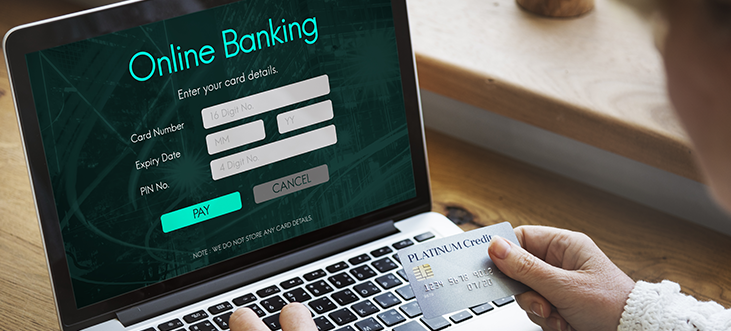
The landscape of personal finance management has been revolutionized by online banking, presenting us with unparalleled convenience and accessibility. Yet, its immense power also comes with a vital duty: safeguarding your financial information. In the section below, we’ll discuss essential strategies to guarantee a secure and safe online banking experience.
1. Strengthen Your Digital Fortress with Robust Passwords
Online banking security is anchored in the creation of strong and unique passwords. Avoid reliance on easily deducible information such as birthdates or common names. Instead, construct intricate passwords involving a combination of uppercase and lowercase letters, numbers, and special characters. Regularly changing your password is key to diminishing the risk of unauthorized access.
2. Double Down with Two-Factor Authentication (2FA)
Most financial institutions offer the added layer of protection known as two-factor authentication (2FA). This entails requiring your password and a secondary verification, typically a one-time code dispatched to your mobile device. Activating 2FA significantly enhances your online banking security. Even if malefactors acquire your password, they remain barred from accessing your account without this supplementary verification.
3. Steer Clear of the Perils of Public Wi-Fi
The allure of checking your bank account while sipping coffee at a local café is understandable, but beware: public Wi-Fi networks are far from secure. They provide an easy target for hackers to intercept data, jeopardizing your financial information. The wisest choice is to conduct your online banking activities on secure, private networks, mitigating this peril.
4. Proactive Monitoring of Your Finances
Active surveillance of your accounts serves as a proactive defense. Regularly scrutinizing your transaction history and account statements helps unearth unauthorized or suspicious activities. The quicker you identify an issue, the faster you can report it to your bank and implement financial safeguards.
5. Strengthen the Fortifications of Your Devices and Networks
The devices you use for online banking must be malware-free and equipped with up-to-date antivirus software. Keeping your operating system, web browsers, and security software current is equally essential. Furthermore, secure your home Wi-Fi network with a robust password to obstruct unauthorized access to your devices and data.
6. Beware of the Cunning Phishing Tactics
Phishing attempts frequently feature deceitful emails or websites masquerading as your bank. Exercise prudence when interacting with links or downloading attachments from unfamiliar sources. It is vital to type your bank’s web address directly into your browser since phishing emails are notorious for harboring malicious links. Always remember that your bank will never solicit sensitive information via email.
7. Embrace the Safety of a Secure Connection
Verifying the connection’s security is pivotal when you access your online banking. Seek the “https://” in the URL, a clear indicator that the website deploys encryption to shield your data. Public computers often lack adequate security measures; thus, avoiding accessing your accounts from such terminals is prudent.
Conclusion
Online banking is a potent tool for managing your finances, yet it places the crucial responsibility of shielding your financial information on your shoulders. By heeding these indispensable tips, you can effectively mitigate the perils associated with online banking and relish its convenience without compromising your security. Safeguarding your financial well-being is well worth the effort for a secure online banking experience.
Embrace the future with IDFC FIRST Bank’s Mobile Banking services. Access your accounts, check balances, and manage your finances from anywhere.
